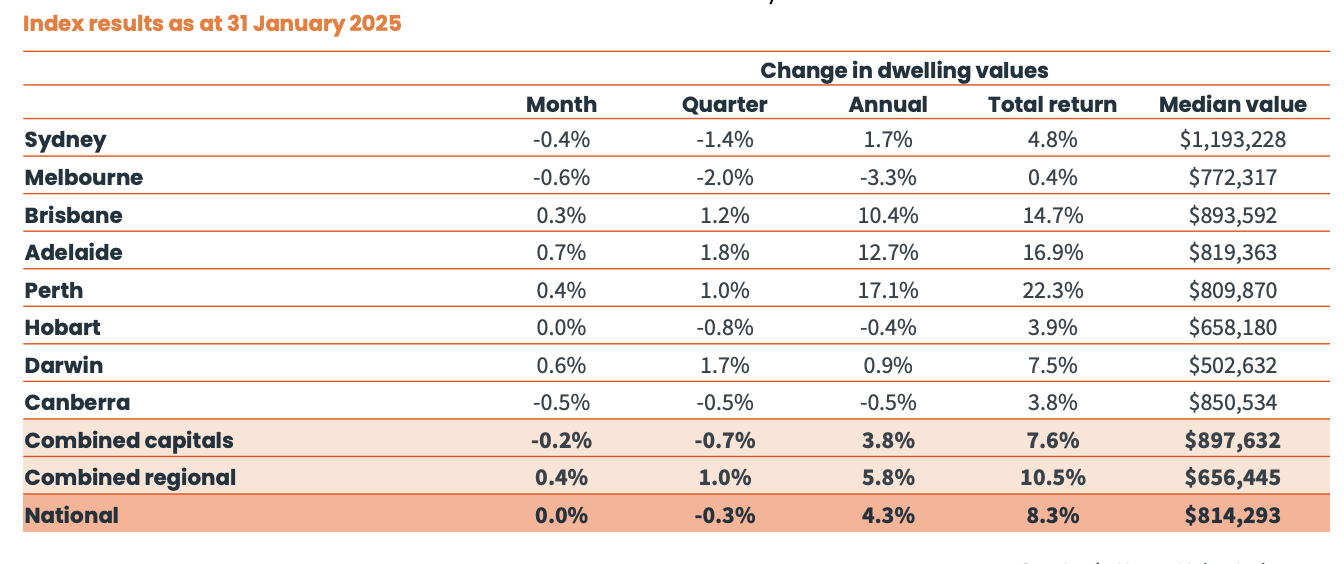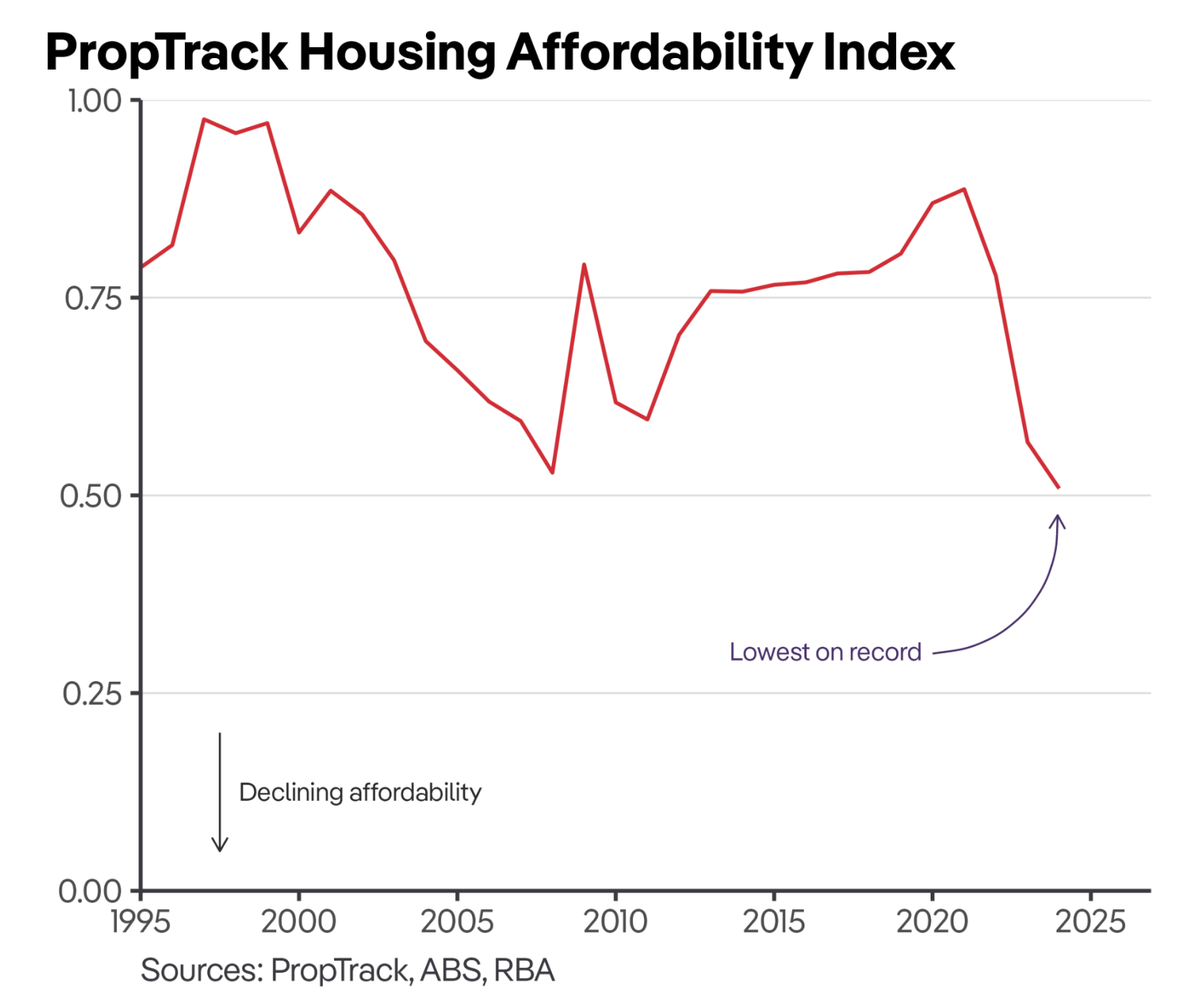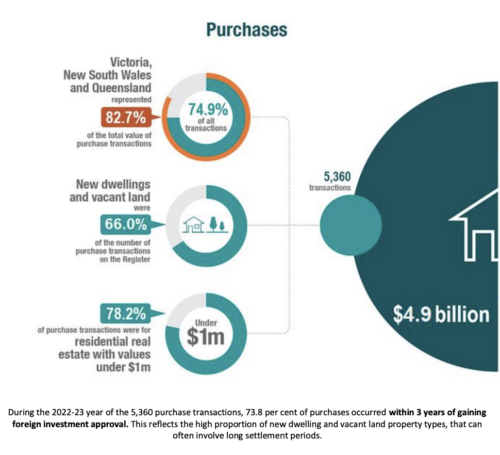Home loans reform + 7-point housing plan + Foreign buyer restrictions

The federal government has announced changes to how student loan debt is assessed in home loan applications, making it easier for some borrowers to qualify for a mortgage.
Currently, banks treat HECS-HELP debt like any other liability, factoring it into serviceability tests and debt-to-income ratios. This can reduce a borrower’s borrowing capacity, even though student loans don’t require repayment if the borrower earns below a certain threshold.
Under the new rules, lenders will be able to exclude HECS repayments from serviceability assessments if the borrower is close to paying off their debt. Excluding HECS from debt-to-income ratios will also allow some home buyers to borrow more.
CoreLogic’s latest home value index shows the national median price rose 4.3% in January when compared to a year ago (see image).
With affordability pressures making it harder to enter the property market, these adjustments aim to remove unnecessary barriers for first home buyers.

REIA’s plan to fix Australia’s housing crisis
The Real Estate Institute of Australia (REIA) is calling for urgent housing reforms ahead of the 2025 Federal Election.
Key elements of REIA’s 7-point plan include:
Fast-tracking the delivery of 1.2 million homes under the National Housing Accord, including initiatives to encourage older Australians to downsize, freeing up larger family homes for younger buyers.
Expanding first-home buyer deposit assistance schemes and revising APRA’s lending criteria to make homeownership more accessible for young Australians and key workers.
Supporting the expansion of Build-to-Rent developments to boost long-term rental housing supply.
Maintaining negative gearing & capital gains tax exemptions to encourage property investment and stabilise rental supply.
Phasing out stamp duty to reduce upfront costs and improve housing accessibility.
Reducing regulatory burdens for small real estate businesses to foster industry growth.
Strengthening the workforce by including real estate roles in skilled occupation lists.
REIA President Leanne Pilkington said the plan comes at a time when housing affordability is at its lowest level since 1996 (see graph).
“With mortgage repayments consuming a significant portion of household income and rental stress rising, REIA’s strategy aims to address these issues head-on,” she said.

New restrictions for foreign property investors
The federal government is banning foreign investors from buying existing homes for two years, in a move aimed at tackling Australia’s housing affordability crisis.
From 1 April 2025 to 31 March 31 2027, foreign buyers – including international students and foreign-owned companies – won’t be able to purchase established dwellings. However, they’ll still be able to buy new homes, in a bid to boost supply.
Housing Minister Clare O’Neil said the move would “free up thousands of properties for Australians”.
However, with foreign investors accounting for only a small slice of the market, the impact is expected to be limited.
The most recent Australian Taxation Office data shows foreign buyers made just 5,360 residential property purchases in 2022-23, with only a third involving existing homes. That’s a drop in the ocean compared to the 670,000 property transactions that happen in an average year.

